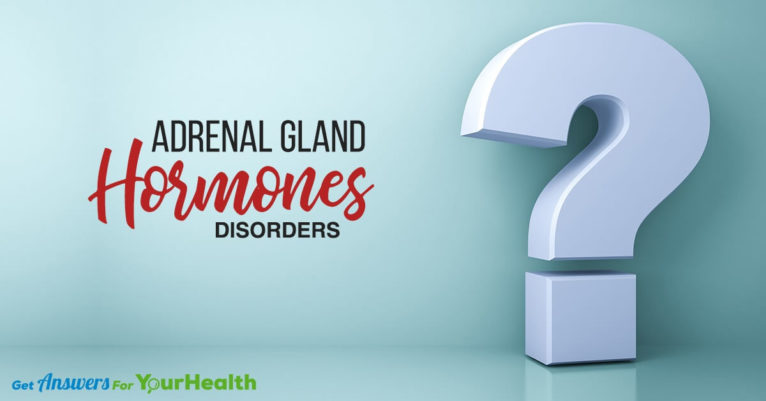Obesity is becoming a huge problem throughout the world. From young kids, to elderly citizens, many people are afflicted with the condition. On top of that, it seems to be getting worse. The problem is that people fail to understand how much of a health hazard it is. If weight problems continue, they can give way to dozens of illnesses including diabetes, heart conditions, stroke, gallstones, high cholesterol, cancers of different types, and gout.
If you aren’t really into biology, then you may be surprised to hear that the pancreas is responsible for some very important hormones. It does not just help with digestive enzymes, but is also responsible for the production and release of insulin, the hormone responsible for the breakdown of sugar and other foods.
The pancreas is one of the most major organs of the body. If it does not function properly, serious medical conditions can result. The unique thing about this organ is that it performs both exocrine and endocrine functions, meaning it is responsible for the production of enzymes for metabolic reactions and hormones for the management of glucose in the body.
The adrenal glands are part of the endocrine system that are responsible for the production and secretion of various hormones that control many bodily functions. If something happens to the adrenal glands or there is some kind of disruption in the production of hormones, it can lead to many other symptoms felt elsewhere in the body.
Fatty liver and hormones? How can the two possibly be connected? The liver has nothing to do with hormones, or so it seems! What is fatty liver disease anyway? These are only a few of the questions that may be going through your mind. Maybe you don’t know what fatty liver disease is, or maybe you have just recently been told that your hormones are imbalanced. Rest assured, there are answers for you.
The very first thing that you need to know is that liver has a huge connection with hormones and its imbalance, even though the liver itself doesn’t produce any hormones. It is the liver that causes the breakdown of steroid hormones in order to perform a variety of functions. Here is what happens:
- Liver helps in breaking down the hormone cortisone which is responsible for the control of the immune system
- Helps with sex hormones in order to keep sex life as well as body shape maintained
- Manages aldosterone that is in charge of water and its minerals, potassium and sodium
If there is something wrong with the liver and it does not work at its optimum level, then these hormones will not be managed efficiently and this will adversely affect many bodily functions. When the sex hormones are imbalanced, there can be complications with sexual functions. Similarly, if aldosterone is not broken down, it can give way to fluid retention, which causes weight gain, aggravation of cellulite, and a rise in blood pressure.
Still not sure if it is your liver that is giving you hormonal issues? Here is some information about fatty liver and what hormonal problems arise because of it.
Fatty Liver Disease
There is always a certain amount of fat in all organs, including the liver. If fat accumulations get too high, it can cause malfunctioning of the liver and this is known as fatty liver disease. There are two types of fatty liver disease, alcoholic liver disease and nonalcoholic fatty liver disease. If the disease is not treated in time it could lead to cirrhosis, or the scarring of the liver tissue. This condition is irreversible and can lead to death.
Studies show that about 10-20 percent of Americans suffer from fatty liver disease, but the condition is often easily controlled and resolved. Most patients are between the ages of 40-60 years when diagnosed. If the disease is not detected in time, and then progresses, it can become irreversible. Some general symptoms of fatty liver disease are:
- Weight loss
- Confusion
- Physical weakness
- Lack of appetite
- Abdominal pain
- Fatigue
If you have any of the above symptoms, or if you have been diagnosed with hormonal issues, then you need to make sure that your liver is also checked. You may be suffering from fatty liver condition, particularly if you are a habitual user of alcohol. The sooner you see a doctor and get your diagnosis made, the better. If the condition progresses and liver cirrhosis sets in, chances of survival will go down very fast. You could even have liver failure along with whatever kind of hormonal imbalance you are currently facing.
So what is the connection between hormones and the liver?
Hormonal Imbalance and Fatty Liver Disease
Research suggests that nonalcoholic fatty liver disease (NAFLD) can occur due to diabetes type II, which means hormonal issues. What’s more, some cases make it clear that the disease takes place due to irregular growth hormone, PCOS, hypothyroidism, and hypercortisolism. This clearly indicates that hormonal imbalance can be a major reason why NAFLD takes place, particularly among women.
This unfortunately is not where the connections ends. Studies have made it clear that if you have fatty liver disease, then your hormones are not going to function like they should. When it comes to sex hormones, estrogen is affected the most. Lack of breakdown can mean that your body has too much estrogen. This leads to pain in the breast tissue and can make them limp, weight gain to the point of obesity, heavy and painful menstrual bleeding, heavier hips, butts, and thighs. Cellulite can also form.
Males are also affected by this problem with the liver. Testosterone hormone is not broken down and it can cause weight gain on the upper parts of the body, abdomen, as well as the trunk. This problem can occur with women too and when they have access amounts of male hormones, they too can have heavier upper bodies, excessive hair growth, irregular menstrual cycle and adult acne. This can also lead to PCOS.
Fatty liver disease does not just attack sex hormones, but insulin too. When there is too much fat deposits in the liver, insulin does not work as it should because weight gain takes place. This can have an adverse effect of high secretion of insulin which is known as syndrome X.
By now you may be thinking that nothing can be done. With the right diagnosis, proper treatment can be started. As mentioned before, fatty liver disease is often reversible, so long as it is detected in time.
The doctor will most likely tell you to cease the consumption of alcohol, change your dietary habits, and perform regular exercise each and every day. You will notice that as your liver gets better, so does your hormonal disorder.
What you need to keep in mind though is that your liver condition could be the result of hormonal disorder and not the cause. This would mean that you will have to get care for your hormonal condition in order to correct the excess fatty deposits in the liver. Therefore, get yourself checked first and see what the problem is. Remember, the sooner you get yourself checked, the quicker you can do something about it and start leading a normal and productive life!
References
- https://www.liverdoctor.com/liver-affect-your-hormones-and-your-weight/
- https://www.healthline.com/health/fatty-liver
- https://www.ncbi.nlm.nih.gov/pmc/articles/PMC4607905/
- https://www.liverdoctor.com/your-liver-can-affect-your-mood-and-hormones/
Hair loss is one of the most heartbreaking thing that men and women of all ages can experience. Good hair is the major reason why many people feel so confident about the way they look. Imagine those lustrous locks swaying from side to side on a beautiful day. Just the thought can put a smile on your face. Hair loss, no matter what the age, is a huge setback for people.










